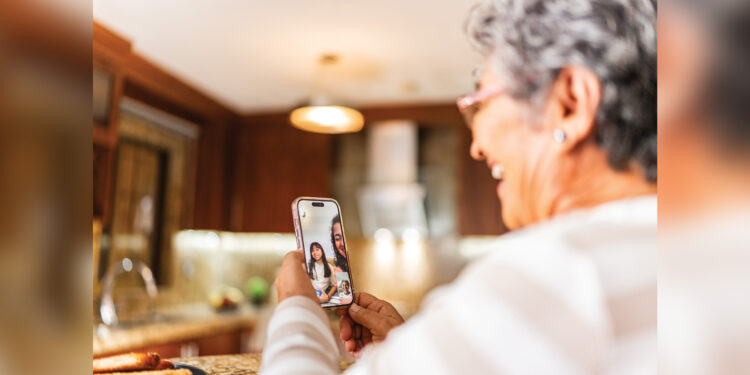Written by David Tucker, Executive Director, Senior Community Center of Owensboro-Daviess County
The holidays are great! Many families get together for the best times they have together all year. People travel home to visit parents or grandparents. Favorite memories are shared, and family recipes abound. Yet, when the holidays are over, and everyone moves on to making New Year’s resolutions, loneliness and isolation sets in for many seniors.
According to the U.S. Census Bureau, 27% of seniors over the age of 65 live alone. During the winter months, when the days are shorter, the nights are also longer. Often, seniors spend a lot of extra time sleeping or staying in bed during the
winter because they are lonely, and the darkness feeds this feeling. Added to that feeling of loneliness is the fact that their families have gone back to their own routines and the love that was shared in December feels farther away.
Loneliness is seen at higher rates among those living with poorer physical and mental health. Adding to those factors are seniors who are no longer working, live alone, or have a disability that limits daily activities. This information comes from the National Poll on Healthy Aging, which also states that the number of seniors reporting feelings of loneliness is higher among women. The poll also states that these feelings have increased since the COVID pandemic.
So, what can be done? How do we combat such statistics?
It’s easy for us to say that seniors should just remain active and connected to their communities, but the reality is that the longer we live, the more losses we experience. Working with seniors, their conversations often turn to what they can no longer do, how many friends and loved ones they have lost, and the struggle to feel relevant to society.
The National Council on Aging recommends a few things that seniors can do to combat their feelings of loneliness.
Making communication a priority. Stay in touch with friends, family, and neighbors. This communication goes both ways, we should not leave it to the senior to be the first to reach out. We need each other and we should watch out for each other. If you have a senior in your life or know of a senior in your neighborhood, don’t assume they have someone watching over them. Reach out, communicate, and encourage them to remain as active as possible.
Encourage social activities through local organizations. Find a place to engage. Our community has a highly active senior community center that provides exercise classes, social contact, and fun activities. There are groups for seniors to take trips, gather for discussions, or just enjoy lunch together. The senior center offers all of this and more for anyone aged 60 and over. Churches often have senior groups that gather regularly and stay in touch with each other. There are other groups in our community as well, just look around and you’ll find something that works for you.
Hobbies and interests are often a way to connect with others as well. Perhaps a book club, a quilting club, a crafting club, or any other interest would be a good way to make friends with similar interests.
Look for opportunities to combat loneliness at any time. When a group isn’t gathering, or the weather is too difficult to get out of the house, there are still other options to keep isolation at bay. Mental Health America (MHA) has an online support community that is full of people day and night looking to communicate and support others. For those who enjoy a phone conversation, there is The Friendship Line, which is available 24/7 for adults who are 60+ and offers a caring ear and friendly conversation. The number for The Friendship Line is 1-800-971-0016.
There is an African proverb that says, “It takes a village to raise a child.” My feeling is that it takes a village to survive and be successful at life. In life, I’ve found that I need people around me. Sometimes, they are for support or encouragement. Sometimes, to inspire or be inspired. Yet, other times, just to help battle the feeling of isolation that comes with the thought of being alone in a crowd of people. The bottom line is that we all need each other. As a society, we can often do much better. Let me challenge you today to look out for a senior who may need you in their life. Use the tips above to connect and help them with the loneliness and isolation that comes this time of year. Again, we need each other and we are truly stronger together. OL










